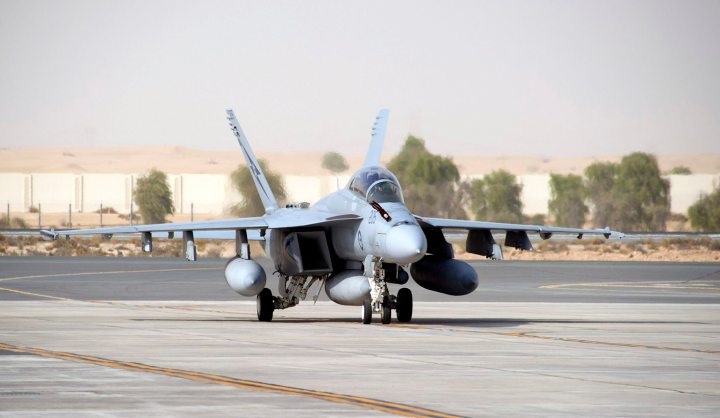Africa
Analysis: US airstrikes in Libya won’t deter IS

On 19 February 2016, the US launched airstrikes in Libya, targeting an Islamic State camp in Sabratha, killing an estimated 50 Islamist militants. Such short-sighted counterterrorism operations will have dire implications for the rest of Africa. By JASMINE OPPERMAN.
In an escalation of its counterterrorism operations in Africa, the US is conducting airstrikes in Libya. On 19 February, about 50 alleged Islamist militants were killed by US planes in an Islamic State (IS) camp in Sabratha. The operation was hailed as a success by US officials.
“We will continue to take actions where there is a clear target in mind,” said US President Barack Obama, justifying the operation and confirming that it is unlikely to be the last.
Such a strategy is at best short-sighted. At worst, it fundamentally misunderstands the nature of the IS presence in Libya, and could exacerbate the situation.
The IS presence in Libya has always been confined to relatively small territorial pockets. Sirte, the late Muammar Gaddafi’s home town, is a stronghold. But the group’s territorial ambitions are hampered in Libya by the already heightened alert on terror-related activities, with regional and international governments, especially Morocco and Algeria, spending vast amounts of money on counterterrorism.
Consequently, instead of expanding territory, IS has focused on simply maintaining a presence in Libya, while extending its reach south. The goal is to create a north-south axis of IS-aligned groups that reaches as far down as southern Africa.
In this context, Libya is not the beginning and end of IS in Africa. Yes, it is a stronghold, but its expansion in Africa does not rely on territorial control. Instead, IS will rely on amplifying its already effective propaganda operation on the continent. Its efforts will only increase as pressure mounts in Syria, Iraq and now Libya.
And the US airstrikes in Libya, far from damaging the group, are only likely to make IS propaganda even more effective. IS and al-Qaeda groups flourish in environments where there are no effective government controls, and where conflict already exists (even if the conflict is not necessarily related to Islamic extremism). Bombings and drones might destroy a camp and kill a few leaders, but it does not provide a quick fix to these existing vacuums.
Bombings also increase anti-Western sentiments. Civilian casualties in Syria and Iraq are well reported, and if the new US airstrikes follow a similar pattern the same can be expected in Libya. In Africa, we’ve already seen how al-Shabaab uses civilian fatalities inflicted by the African Union Mission in Somalia as a potent recruiting tool.
Already, groups like Boko Haram and al-Shabaab rely on asymmetrical warfare and not territorial control. In Africa, everything indicates that IS is following the same pattern. This means targets to bomb will be few and far between, and may even solidify the group’s legitimacy in the eyes of local populations.
There is credible evidence to suggest IS has established presences further south in Africa, even outside of countries like Somalia and Nigeria that have a history of Islamist extremist movements. This extends as far as South Africa, where the propaganda effort (coupled with the likely presence of IS recruiters) has resulted in scores of young people travelling to Syria to join IS.
Central and southern African countries faced with the presence of IS cells and recruiters have a difficult question to answer: how to respond to these “soft threats” posed by IS? The reality is that a mindset focused on responding only to “hard threats”, such as terrorist attacks or attempts to assert territorial control, won’t work. Arrests and prosecutions are all well and good, but unless they are accompanied by some kind of effort to counter IS propaganda — to respond to the undeniable appeal of the group to certain vulnerable portions of populations — it won’t be enough to halt the group’s expansion.
By the same token, neither will US airstrikes. These fail to address the power and stability vacuums which allow IS to flourish, and they may actively deter attempts to instil law and order in the country. At the same time, the airstrikes risk increasing the group’s appeal in other African countries where it already has a presence, by amplifying its propaganda and reinforcing the legitimacy of its anti-western message. DM
Jasmine Opperman is the Africa Director for the Terrorism Research and Analysis Consortium.
Photo: An undated handout picture made available by the Australian Department of Defense on 24 September 2014 shows a Royal Australian Air Force F/A-18F Super Hornet taxiing down the runway after flying from Australia, at Al Minhad Air Base in Dubai, United Arab Emirates. EPA/AUSTRALIAN DEPARTMENT OF DEFENSE.
















 Become an Insider
Become an Insider